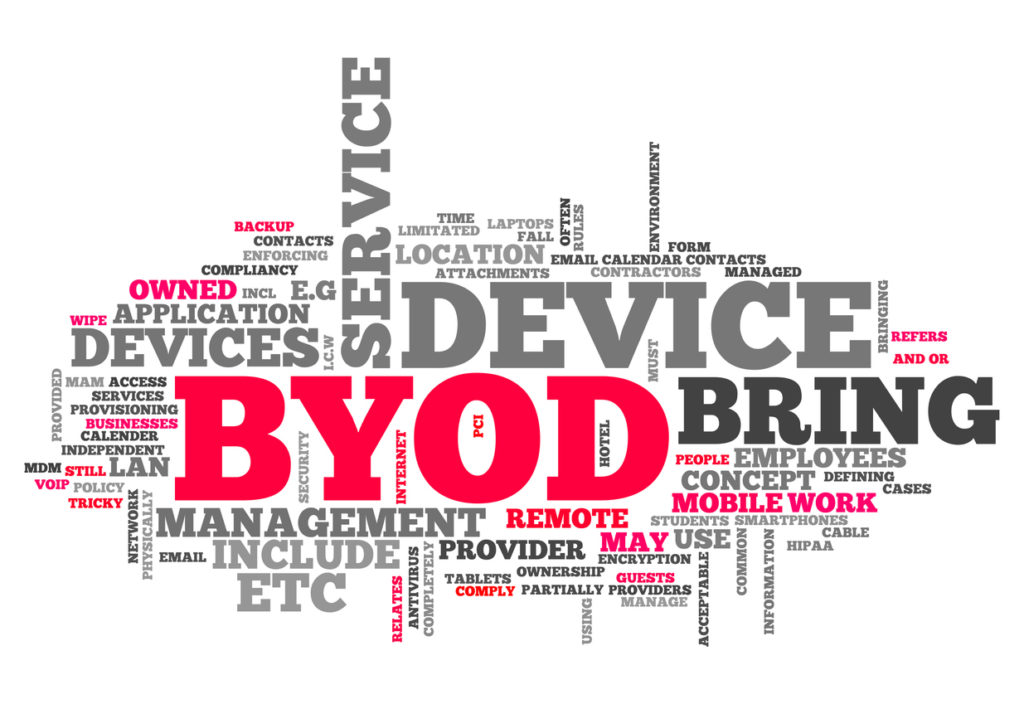An increase in BYOD has lead to more businesses integrating unified communications with VoIP systems.
BYOD stands for bring your own device and is something that companies are starting to let their employees do on a more regular basis.
For the most part, this can have a lot of benefits and boosts the number of businesses that move over to VoIP software for their communications.
Below, you can learn more about BYOD and how it’s affecting VoIP migration among companies.
BYOD Benefits & VoIP Systems
Flexibility
One of the most notable benefits to integrating BYOD and how it encourages VoIP migration is that it allows employees to be more flexible.
Since more millennial’s are entering the workforce, businesses are finding that there’s an increased interest in being able to work from their own devices. This is due to apps on devices, such as calendars, productivity programs, and more are being used across people’s personal lives as well as when they’re at work.
You’re also provided with more flexibility in terms of being attached to one VoIP provider. The providers that require them to supply the equipment for communications means that it only usually works with their services.
By implementing BYOD, you can choose from a range of VoIP providers that allow you to use your own devices. This saves any hassle if you ever wanted to change VoIP service providers.
This also means you can save money on additional hardware as employees are using their own devices.
Ease of Use
VoIP providers are making it a lot easier for companies to use their services with employee’s personal devices. Therefore, it can be a simple case of downloading the VoIP app and signing in on the device.
When employees are logged in, their device is essentially turned into a company phone.
Furthermore, when calls are being made on a phone, they can easily be transferred onto a different device, such as a laptop, without having to end the phone call. As a result, communications within the business can operate smoothly.
A Personal Touch
When employees are working for large firms, it can be difficult for them to create a connection. Establishing a better connection with employees and their purpose in the company can be a huge motivator.
Getting rid of company devices and letting them use their personal devices can produce a distinction that the work has a more personal touch. Company phones can make people feel like there’s too much of a separation between work and their personal lives.
Reduced Costs
BYOD is an effective way for businesses to lower their cost. You don’t have to spend on company devices, you just have the cost of the VoIP services.
VoIP providers have apps that make it easy to use along with a range of devices. Not to mention, there are regular software updates via the cloud.
Things to Consider When Implementing BYOD
When you’re encouraging BYOD in companies, you’ll need to ensure that everyone from the legal and human resources teams, to the developers and IT teams are comfortable with the decision.
When putting the idea of BYOD forward, it’s also important for each team within the business to be happy with what people can and can’t have access to when using their own devices. This is to ensure that BYOD can be implemented into a business without becoming a distraction.
Check out some more of the other ways that you can go about integrating BYOD successfully into your company here.
Clear Guidelines
There should be a full guideline that lets employees know exactly the kinds of things that they can use their own devices for when working. Ideally, a legal structure would be put in place to make sure that employees stick to the guidelines.
The legal aspect is a crucial one because it can help with security measures. If an employee loses their phone, the agreement should contain details that the company has permission to lock it down to prevent outsiders accessing confidential information.
There are many ways that people could access your company’s information if they’ve gained access to an employee’s phone. The device could contain pictures, messages, and voicemails that could be compromising.
This is especially the case with the executives of the business. They likely have more important information than the employees.
Types of Devices
It should also be made clear to your employees that not all devices will be accepted as BYOD. This is because there may be some devices that are deemed to be ready for use in company environments.
While most types of devices can be used, it’s best to provide your employees with the expectation that their device may not be suitable.
Test managers may need to be utilized to help test devices and deem them worthy of being used to carry out company work.
Conclusion
Introducing BYOD is a clear sign that your business is ready to ditch the traditional ways of communicating and the availability of mobile VoIP is making it greater reality by the day.
Employees are provided with more flexibility to work from different locations and you’re able to reduce your costs. Moreover, there are lots of VoIP providers with apps that are compatible with modern devices.
If you’ve been thinking about allowing BYOD in your business, it’s inevitable that you’ll need a VoIP system to unify your communications. You can use this post to learn more about how BYOD encourages VoIP systems to be a critical part of your business.

